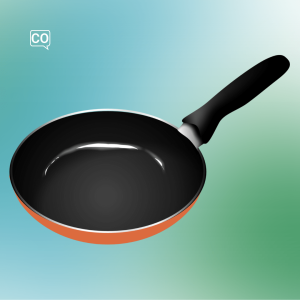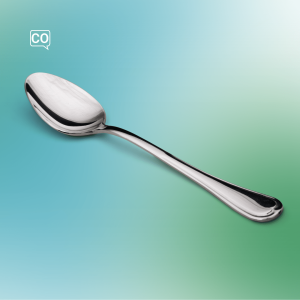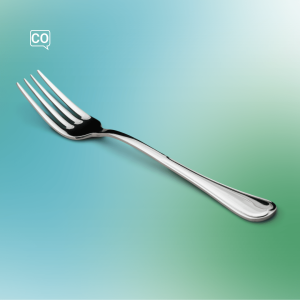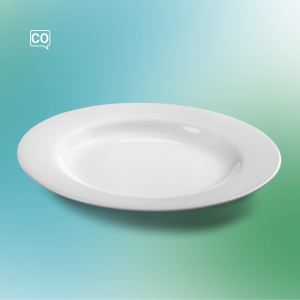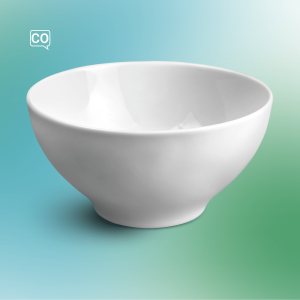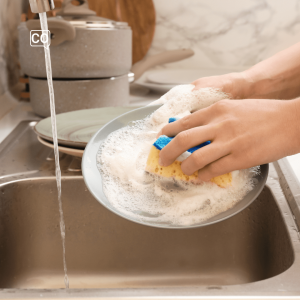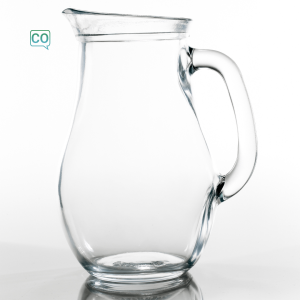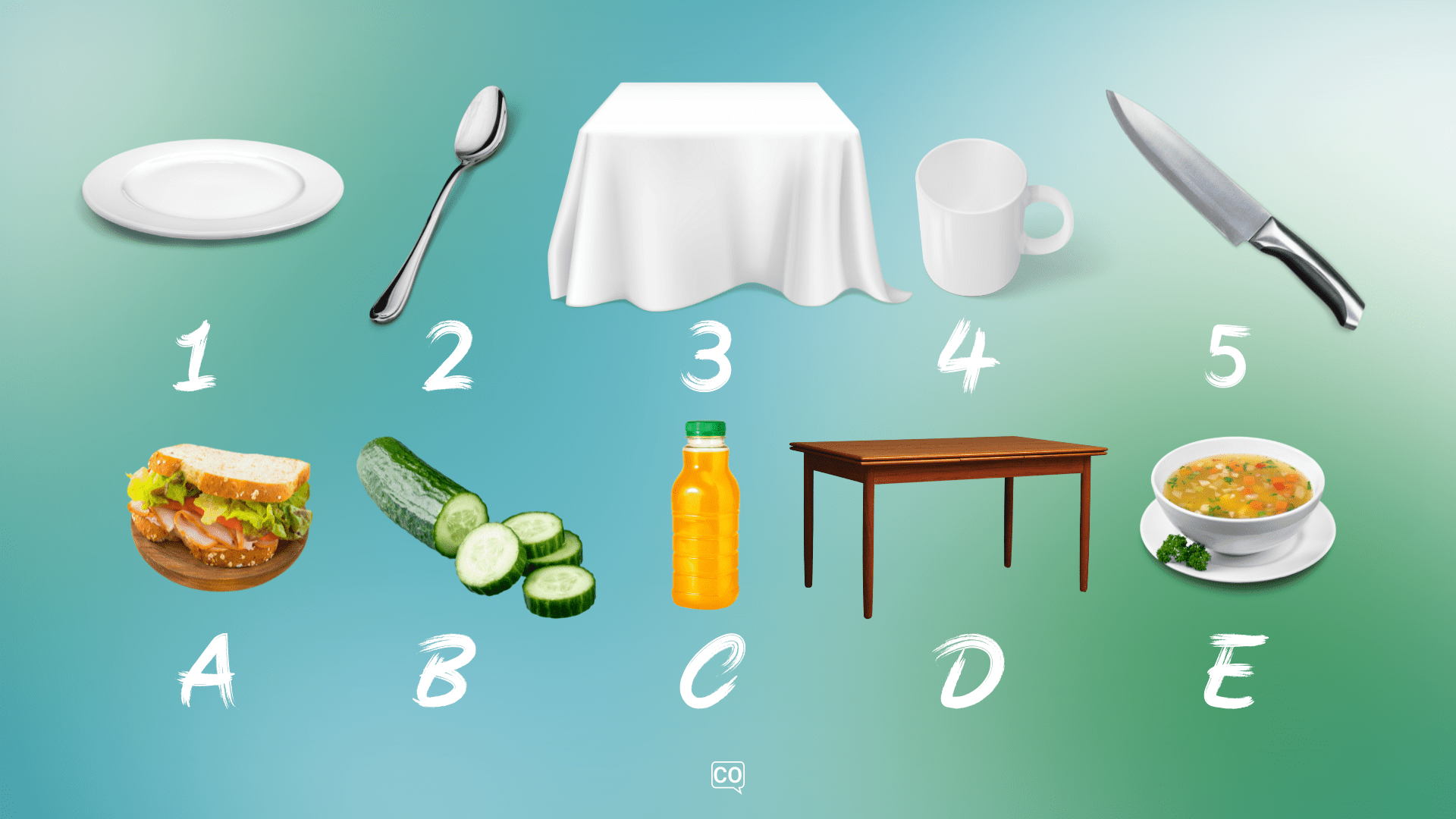Vajilla

Learning goals:
- Lista de utensilios de mesa (List of tableware)
- Poner la mesa (Setting up the table)
- Utensilios de cocina y vajilla (Kitchen utensils and tableware)
-
Preposiciones de lugar:
"en, sobre, entre,..." (Prepositions of place: "en, sobre, entre,...") - El Encanto del Botijo (The Charm of the Botijo)
Learning module 5 (A1): En casa (At home)
Recap exercises of the previous lesson
Teaching guidelines +/- 60 minutes
Core vocabulary (15)
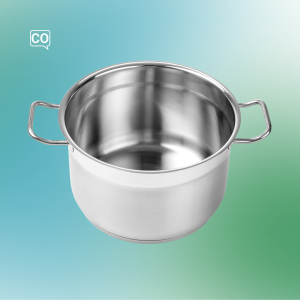
La olla está en la cocina, sobre la mesa.
(The pot is in the kitchen, on the table.)
La olla
(The pot)
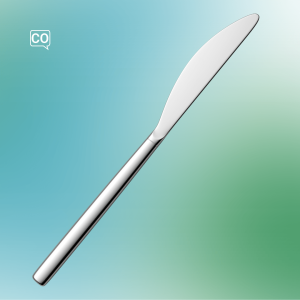
El cuchillo está en la mesa junto a los platos.
(The knife is on the table next to the plates.)
El cuchillo
(The knife)
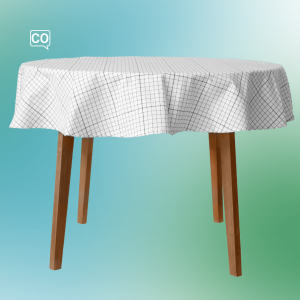
El mantel está en la mesa del comedor.
(The tablecloth is on the dining room table.)
El mantel
(The tablecloth)
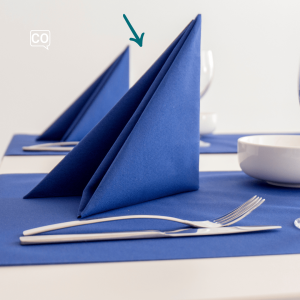
¿Puedes darme una servilleta, por favor?
(Can you give me a serviette, please?)
La servilleta
(The napkin)
Listening materials
Our listening materials implement the verbs, vocabulary and grammar topics of this lesson. Audio and video available!
A1.33.1 Diálogo: Poner la mesa
Spanish A1.33.1 Set the table
Pedro y Ana preparan la mesa para la cena. Usan palabras simples relacionadas con utensilios de cocina y la preparación de la mesa.
(Pedro and Ana set the table for dinner. They use simple words related to kitchen utensils and table setting.)
Teaching guidelines +/- 15 minutes
A1.33.2 Gramática: Preposiciones de lugar: "en, sobre, entre,..."
Spanish A1.33.2 Prepositions of place: "en, sobre, entre,..."
(Learn the basic prepositions of place in this lesson using dishware vocabulary.)
Teaching guidelines +/- 15 minutes
A1.33.3 Cuento corto: Un Desayuno Especial
Spanish A1.33.3 A Special Breakfast
Sigue a Eva mientras prepara un desayuno especial para su familia, usando varios utensilios y organizando la mesa.
(Follow Eva as she prepares a special breakfast for her family, using various utensils and setting the table.)
Teaching guidelines +/- 15 minutes
A1.33.4 Cultura: El Encanto del Botijo
Spanish A1.33.4 The Charm of the Botijo
Descubre el botijo, una vajilla típica de España. Aprende sobre su uso y decoración.
(Discover the botijo, a typical Spanish crockery. Learn about its use and decoration.)
Teaching guidelines +/- 10 minutes
Exercises
These exercises can be done together during conversation lessons or as homework.
Exercise 1: Find the words
Instruction: Find the words, mark them and make sentences with the words.
Show answers Show hintsHints
To cut , The cup , The spoon , The jug , The frying pan , The plate
Answers
Score: 0/6
| La sartén | (The frying pan) |
| La cuchara | (The spoon) |
| El plato | (The plate) |
| Cortar | (To cut) |
| La taza | (The cup) |
| La jarra | (The jug) |
Exercise 2: Reorder sentences
Instruction: The words in these sentences have been shuffled! Sort them so that they make a valid sentence again and translate.
Show answers Show translationExercise 3: Translate and make sentences
Instruction: Translate the words and phrases below and use it in a conversation or text.
Show answersExercise 4: Translate and use in a sentence
Instruction: Translate and say the word out loud. Use the word in a sentence.
Show translation|
1.
La sartén
|
(The frying pan) |
|
2.
El plato
|
(The plate) |
|
3.
La copa
|
(The glass) |
|
4.
El cuchillo
|
(The knife) |
|
5.
La cuchara
|
(The spoon) |
Exercise 5: Conjugación verbal
Instruction: Choose the correct word, read the sentence out loud and translate.
Show answers Show translationCortar (Presente, indicativo), Fregar (Presente, indicativo)
1. Él ... la cuchara rápidamente.
2. Vosotros ... el queso.
3. Nosotros ... los cuchillos juntos.
4. Ellos ... todo aunque estén cansados.
5. Yo ... los platos todos los días.
Exercise 6: Prepositions of place: "en, sobre, entre,..."
Instruction: Choose the correct word, read the sentence out loud and translate.
Show answers Show translational lado del, encima de la, a la derecha de las, delante de los, sobre, entre
1. Las ollas están ... sarténes.
2. El plato está ... el tenedor y el cuchillo.
3. El cuchillo está ... tenedor.
4. Las servilletas están ... platos.
5. Pongo el mantel ... la mesa.
6. Los vasos están ... mesa.
Exercise 7: Translate and make sentences
Instruction: Translate the words and phrases below and use it in a conversation or text.
Show answersConversation exercise
Teaching guidelines +/- 10 minutes
- Conecta la vajilla con su uso. (Connect the tableware with what it's used for.)
Example phrases:
- Un plato se usa para comer un sándwich. (A plate is used to eat a sandwich.)
- ...
Appendix 1: Extended vocabulary table
Core vocabulary
(15):
Verbs: 2,
Nouns: 13,
Context vocabulary:
14
| Spanish | English |
|---|---|
| A la derecha de las | To the right of the |
| Al lado del | Next to the |
| Barro | Clay |
| Boles | Bowls |
| Botijo | Water jug |
| Cortar | To cut |
| Cucharas | Spoons |
| Delante de los | In front of the |
| El bol | The bowl |
| El cuchillo | The knife |
| El mantel | The tablecloth |
| El plato | The plate |
| El tenedor | The fork |
| El vaso | The glass |
| Encima de la | On the |
| Entre | Between |
| Fregar | Wash up |
| Friega | Washes up |
| La copa | The glass |
| La cuchara | The spoon |
| La jarra | The jug |
| La olla | The pot |
| La sartén | The frying pan |
| La servilleta | The napkin |
| La taza | The cup |
| Platos | Dishes |
| Servilletas | Napkins |
| Sobre | On |
| Vasos | Glasses |
Appendix 2: Verb conjugation tables for this lesson
Fregar (to scrub)
Exercises and examples phrases
- yo friego I scrub
- tú friegas You scrub
- él/ella friega he scrubs
- nosotros/nosotras fregamos We scrub
- vosotros/vosotras fregáis You (all) scrub
- ellos/ellas friegan They scrub
Cortar (to cut)
Exercises and examples phrases
- yo corto I cut
- tú cortas You cut
- él/ella corta he cuts
- nosotros/nosotras cortamos we cut
- vosotros/vosotras cortáis you cut
- ellos/ellas cortan They cut
Exercise: Verb conjugation
Instruction: Choose the correct word, read the sentence out loud and translate.
Show answers Show translationCortar (Presente, indicativo), Fregar (Presente, indicativo)
1. Él ... la cuchara rápidamente.
2. Vosotros ... el queso.
3. Nosotros ... los cuchillos juntos.
4. Ellos ... todo aunque estén cansados.
5. Yo ... los platos todos los días.
